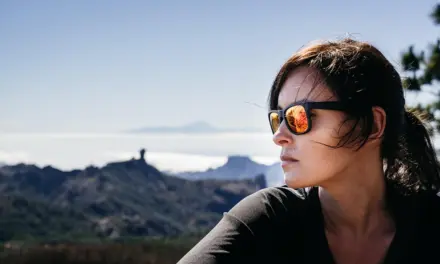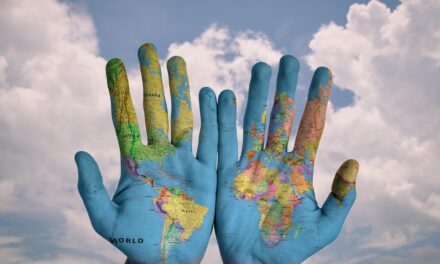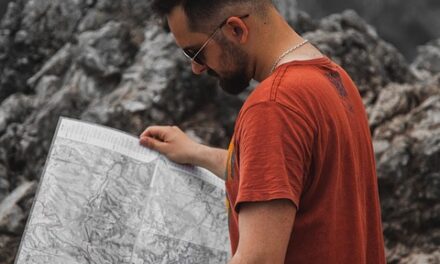Travel has been an irresistible human passion for centuries. Whether it’s the allure of mystical lands or the thrill of venturing into uncharted territories, travel is deeply ingrained in human history. Some individuals, however, have gone far beyond the mere act of travelling, transforming their journeys into tales of daring, discovery, and inspiration. These adventurers and pioneers have left behind stories that teach us about the resilience of the human spirit, the beauty of our diverse world, and the endless possibilities awaiting those willing to venture out.
Through their inspiring travel biographies, we can not only relive their incredible expeditions but also find a spark to fuel our own wanderlust. In this article, we’ll dive deep into the personal stories of famous adventurers and pioneers, exploring their motivations, challenges, and legacies. So, strap on your metaphorical backpack as we set out on a journey through the lives of these remarkable figures.
Why Read Travel Biographies?
Before diving into the stories of these trailblazing adventurers, it’s worth addressing an important question: Why should anyone read travel biographies? What value do they bring?
-
Motivation to Explore
Travel biographies often tap into the core of human curiosity by reigniting your thirst for adventure. The stories of these pioneers remind us of the endless wonders the world has to offer. -
Understanding Different Perspectives
Through these accounts, you gain insights into other cultures, people, and ways of life. Adventurers engage with the unfamiliar in ways that broaden our understanding of the world. -
Learning from Struggles and Triumphs
Pioneers don’t embark on their journeys without hardships, and their resilience becomes a source of inspiration. Their stories show us that challenges are not roadblocks—they are stepping stones. - Practical Travel Tips
Many travel books are packed with wisdom about safety, planning, and immersing yourself in new environments. Though written in a different time, their lessons are evergreen.
1. Ibn Battuta: The 14th-Century Wanderer
The Life Behind the Legend
Widely regarded as history’s greatest traveller, Ibn Battuta from Morocco travelled over 75,000 miles across the medieval world, far surpassing the famed journeys of Marco Polo. Driven by his Islamic faith and intellectual curiosity, Battuta ventured through Africa, the Middle East, India, China, and even Maldives over nearly three decades.
Achievements and Challenges Along the Way
As a solo traveller in an era with limited navigational tools, Battuta often faced hostile environments, shipwrecks, and diseases. Nonetheless, his account, "The Rihla" (The Journey), documents not just landscapes but the diverse cultures, religions, and social structures he encountered. His work remains a treasure trove for understanding the 14th-century world.
Takeaway: Battuta’s life is a testament to cultural curiosity. He reminds us to embrace the unknown and shows that no journey is too long when driven by purpose.
2. Nellie Bly: Breaking Barriers in Travel and Society
Who Was Nellie Bly?
In an era when women were constrained by societal norms, American journalist Nellie Bly set out to do the impossible: travel around the world in less than 80 days. Inspired by Jules Verne’s novel, she completed her journey in just 72 days in 1890, an incredible feat for her time.
Challenges of Being a Female Traveller in the 19th Century
Bly encountered numerous challenges due to her gender. Travelling alone as a woman during the 19th century was almost unheard of. She dealt with scepticism from peers and logistical obstacles while carrying only a single handbag.
Legacy in Travel and Journalism
Nellie Bly’s fearless spirit shattered societal expectations. She paved the way not only for women adventurers but also for fearless journalism. Her book, "Around the World in Seventy-Two Days", remains a riveting read.
Takeaway: Dare to push boundaries. Bly proves that societal constraints and self-doubt are no match for determination.
3. Ernest Shackleton: The Epitome of Leadership in Adversity
Shackleton’s Antarctic Expeditions
Sir Ernest Shackleton is perhaps best remembered for his harrowing Endurance expedition to Antarctica. Attempting to cross the continent in 1914, Shackleton and his crew found themselves stranded on the ice for nearly two years after their ship was crushed by pack ice.
Lessons in Leadership and Perseverance
Shackleton’s incredible leadership, despite overwhelming adversity, ensured the survival of his entire crew. His ability to keep spirits high and make tough decisions under duress has made him an enduring figure in leadership studies.
The Book
His biography, South, narrates this poignant tale of courage where the human spirit triumphs over nature’s fury.
Takeaway: When faced with impossible odds, true leaders rise to the challenge. Shackleton’s story teaches the value of resilience and teamwork.
4. Beryl Markham: First to Conquer East-to-West Transatlantic Flight
An Adventurous Aviator
Beryl Markham was far more than just an aviator; she was a writer, adventurer, and a disrupter of societal norms. Becoming the first woman to successfully fly solo east-to-west across the Atlantic in 1936, she showed unparalleled courage and boldness.
Her Book: West with the Night
Markham’s memoir, West with the Night, is considered a literary gem. Her poetic prose takes readers through her African upbringing, life as a bush pilot, and her historic flight. Ernest Hemingway even praised her book, remarking, “She can write rings around all of us who consider ourselves writers.”
Takeaway: Beryl’s story reveals how bold dreams, coupled with devotion to honing your craft, allow you to soar higher than societal expectations.
Modern-Day Adventurers to Follow
While legendary explorers inspire us from the pages of history, modern-day travellers continue to push the boundaries in unique ways. Here are some of the adventurers paving the way today:
1. Bear Grylls
The TV presenter and adventurer is renowned for surviving in the harshest environments on Earth, often equipped with little more than his wit and survival instincts.
2. Jessica Nabongo
In 2019, Jessica Nabongo became the first Black woman to visit every single country in the world. Her story is one of inclusivity, perseverance, and wanderlust.
3. Levison Wood
The British adventurer has walked the length of the Nile, the Himalayas, and Central America, documenting his journey in gripping accounts that combine adventure with cultural storytelling.
FAQ: Common Questions About Travel Biographies
1. Why should I read travel biographies?
Reading such books allows you to see the world through someone else’s eyes, learn important life lessons, and find inspiration to embark on your own adventures.
2. Are travel biographies realistic?
Each biography reflects the true experiences of its subject. Of course, some details from historical accounts may be subject to embellishment, but the core of these stories remains authentic.
3. Can these books help me plan my own travels?
Yes! Many travel biographies provide insights into overcoming challenges, adapting to new environments, and embracing spontaneous opportunities.
Final Thoughts
The personal stories of adventurers and pioneers remind us that the world is vast, beautiful, and waiting to be discovered. Whether navigating the oceans, scaling mountains, or travelling solo across continents, each explorer has shown how much we can achieve when we follow our passions with relentless determination. So, whether you’re glued to a train-seat or hiking rugged terrain, let these inspiring travel biographies become a source of guidance, courage, and fuel for your dreams. After all, the spirit of adventure is universal, and there’s no better time than now to embrace it.











Subscribe To Our Newsletter
Join our mailing list to receive the latest news and updates from our team.
You have Successfully Subscribed!